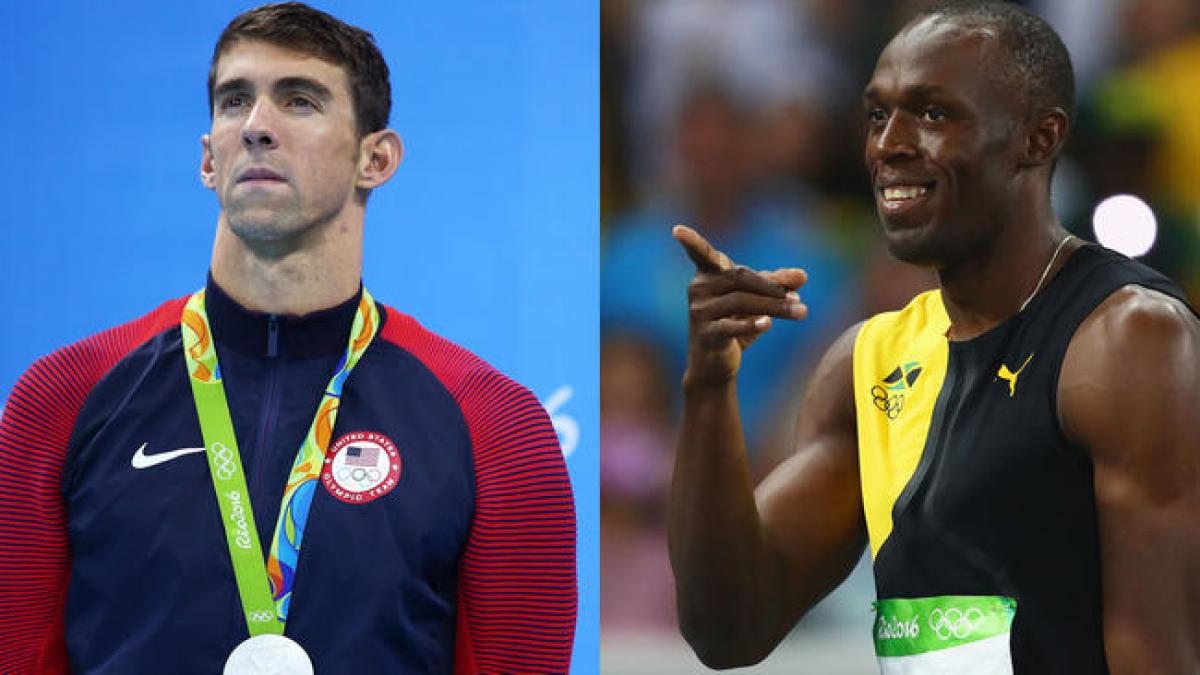Live
- Young Kabaddi Player Dies of Heart Attack During Match in Mandya
- Exciting Return of Santosh Trophy Football Tournament Kicks Off in Hyderabad
- Head Constable Dies by Suicide, Cites harssament by wife and inlaws
- Delhi BJP claims AAP govt will never pay women allowance like in Punjab
- India is 'Mother of Democracy': PM Modi
- ‘One nation, one election’ will undermine India’s federal structure: Mehbooba Mufti
- Vikram collaborates with director Madon Ashwin for ‘Chiyaan63’
- ‘Bachhala Malli’ trailer heightens anticipation
- Karnataka quota row: Backward Class forum chief warns Lingayat seer over 'tinkering with reservations'
- Tight security arrangements at Group-II examination centers District SP
Just In

Even though you are part of a crowd of 20,000 rooting for greatness, the atmosphere rubs on you. To witness Usain Bolt do his fastest man on earth trick or see Michael Phelps achieve glory in a swimming pool is to experience vicarious sublimity.
Rio de Janeiro: Even though you are part of a crowd of 20,000 rooting for greatness, the atmosphere rubs on you. To witness Usain Bolt do his fastest man on earth trick or see Michael Phelps achieve glory in a swimming pool is to experience vicarious sublimity.
But to view both of them push themselves to the limits of human endurance is the stuff of memories that would remain with you forever. That they were doing this for the last time adds a quality of the immeasurable, even as the frozen moments in memory become part of the historic lore.
On Sunday night in Rio, Bolt from Jamaica showed in the 100m race the stuff he was made of. He did not beat the world record set by him, but he showed that within nine-odd seconds he could bring thousands in the Olympic Stadium to their feet with resounding applause. Hundreds of millions of homes across the world would have resonated with words of happiness.
Phelps, an American swimmer, is the most decorated Olympian of all time, reaching 28 medals, 23 of them gold. He has more medals than India's record in Olympic for all the years it has competed. He won eight golds in an Olympic, beating the earlier record of seven golds held by Mark Spitz in 1972. In Rio he swam to glory, again.
Bolt's name and presence was enough to electrify the crowd. Most of them had to make the journey of several hours to witness the 9.81 seconds of glory. He thus became the only person to get three golds in the 100m dash. Bolt achieved the top honour with ease in Rio and did not seem to push himself that extra bit, perhaps knowing that for him winning had become a matter of routine. That's what greatness is all about.
In the previous Games at London, Bolt's time of 9.63 seconds remains the fastest ever run in Olympics. He won the 200m in 19.32 seconds and went on to do a double-treble, with 4X100 metres with a world record of 36.84. In Beijing, he had achieved all the three at the top.
The two legends retire after Rio, leaving others a benchmark not easily reached. Someday, their records would be broken, but at the moment it's difficult to foresee when. When long jumper Bob Beamon achieved the 8.9m "leap of the century" at Mexico in 1968, it took 23 years for it to be broken by Mike Powell in world championships in Tokyo. But the Olympic record has remained intact for over 47 years.
When will the records of Bolt and Phelps be broken? No one cay say. When you achieve such a pinnacle, it becomes that much more difficult for others to walk in your footsteps, many having to remain in their long, long shadow.
In Rio, like in London, Bolt took a victory lap around the stadium obliging fans with selfies and pictures. Throughout his round, the crowd stood on its feet, in an ovation to a man who's record is unlikely to be beaten in a hurry. Similarly, the night before, the crowd gave a standing ovation and extended applause to Phelps, who's achievement is likely to remain unmatched for decades.

© 2024 Hyderabad Media House Limited/The Hans India. All rights reserved. Powered by hocalwire.com







